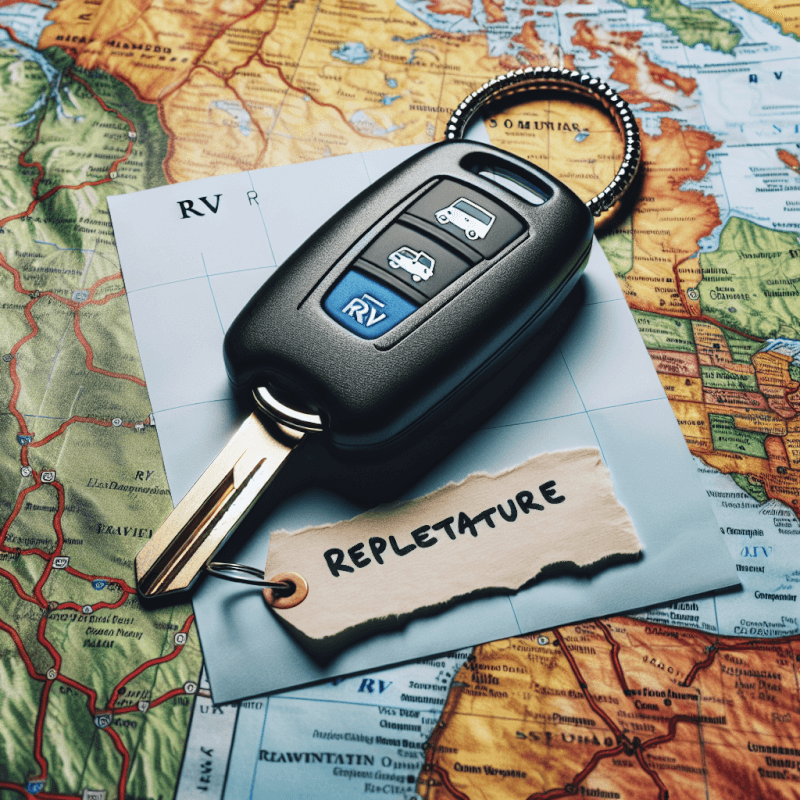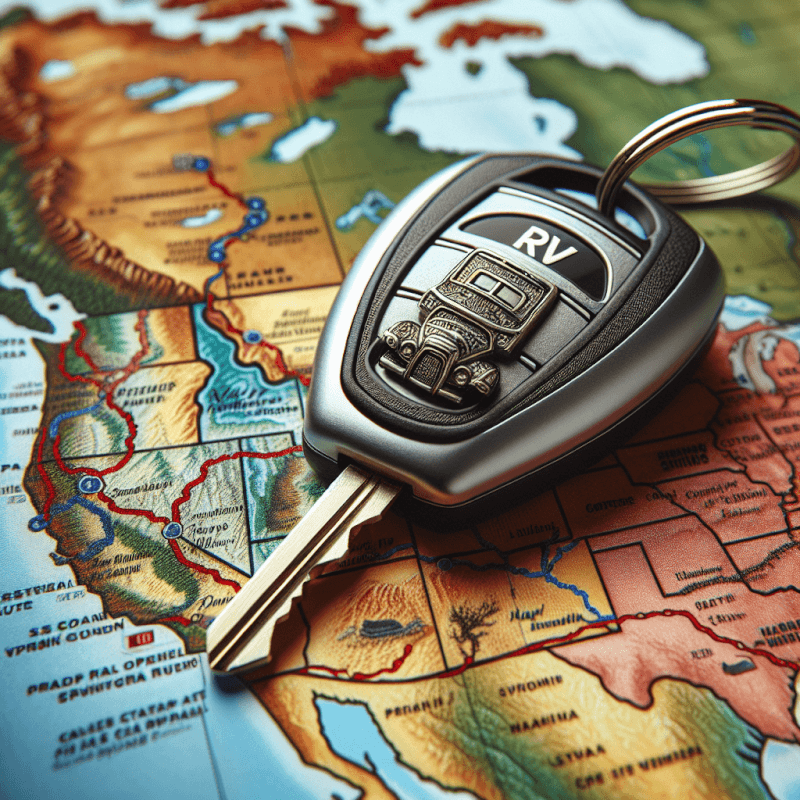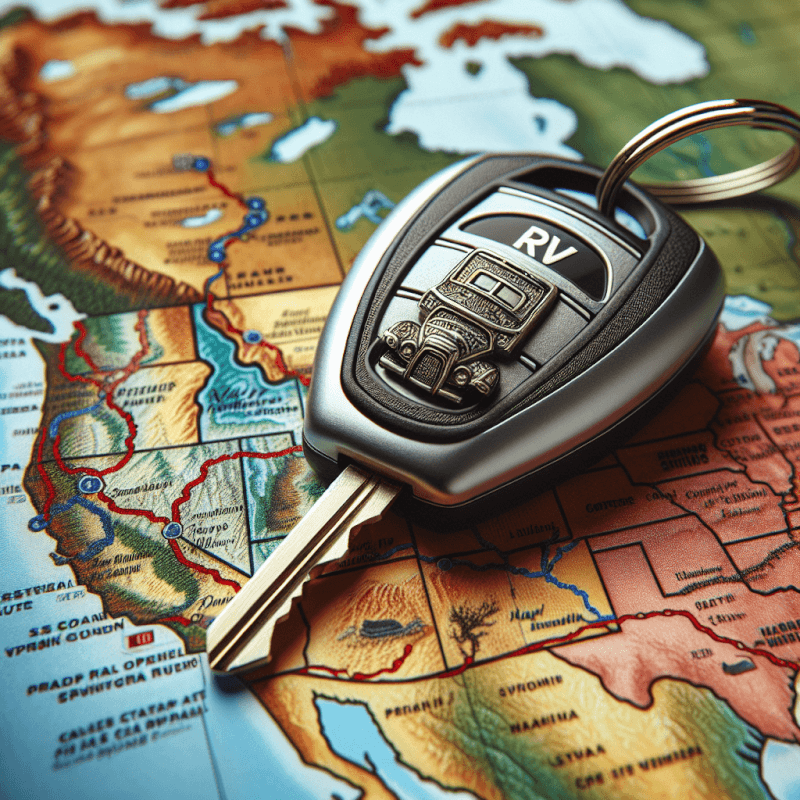When it comes to investing in an RV, one common question that arises is whether or not these vehicles come with warranties. It’s a valid concern, especially considering the significant cost and potential for mechanical issues. Fortunately, most RVs do come with warranties that offer protection and peace of mind for owners. These warranties typically cover various components of the RV, ensuring that you’re not left with unexpected repair bills. In this article, we’ll take a closer look at what RV warranties typically cover and how they can benefit RV owners like you.

Overview of RV Warranties
RV warranties are important for protecting your investment and providing peace of mind while traveling and living in your motorhome or travel trailer. These warranties serve as a form of insurance for your RV, covering various components, repairs, and maintenance costs. In this comprehensive article, we will explore the definition of RV warranties, their importance, the different types available, what they cover, and their limitations and exclusions.
Definition of RV Warranty
An RV warranty is a contract between the manufacturer or a third-party warranty provider and the RV owner that outlines the terms and conditions of coverage for repairs and maintenance. It provides financial protection by paying for repairs and replacements of covered parts or systems in the event of a mechanical breakdown or failure.
Importance of RV Warranties
Having an RV warranty is incredibly important for several reasons. First, it helps protect your budget from unexpected and often costly repairs. RVs are complex machines, and repairs can be expensive, especially if they involve major components like engines or electrical systems. With a warranty in place, you can avoid the financial burden of paying for these repairs out of pocket.
Second, warranties provide peace of mind. Knowing that your RV is covered under warranty can alleviate the stress and worry that comes with potential breakdowns and repairs. This allows you to fully enjoy your RVing adventures without constantly worrying about the possibility of expensive repairs.
Lastly, an RV warranty can also increase the resale value of your RV. Prospective buyers are often more willing to purchase an RV that is still under warranty, as it provides them with the same benefits of financial protection and peace of mind that you enjoyed during your ownership.
Types of RV Warranties
There are two main types of RV warranties: the manufacturer’s warranty and the extended warranty.
Manufacturer’s Warranty
The manufacturer’s warranty, also known as the factory warranty, comes with every new RV purchase. This type of warranty is provided by the RV manufacturer and typically covers defects in materials and workmanship for a specific period of time or mileage.
Coverage
The coverage of a manufacturer’s warranty varies, but it usually includes repairs and replacements of factory-installed components, such as the chassis, engine, plumbing, electrical systems, and interior components. It may also cover problems arising from manufacturing defects, such as leaks, faulty wiring, or malfunctioning appliances.
Duration
The duration of a manufacturer’s warranty varies from one manufacturer to another and may differ for different components of the RV. Typically, the warranty period ranges from one to three years, or a specific number of miles driven.
Limitations and Exclusions
Manufacturer’s warranties often come with limitations and exclusions. These can include specific maintenance requirements, limits on reimbursement amounts, and exclusions for certain parts or repairs. It is important to carefully read and understand the terms and conditions of the manufacturer’s warranty to know what is covered and what is not.
Extended Warranty
An extended warranty, sometimes called a service contract, is an additional warranty that you can purchase separately from the RV dealer or a third-party warranty provider. It comes into effect after the manufacturer’s warranty expires and extends the coverage for a longer period of time.
Coverage
Extended warranties provide coverage for repairs and replacements of various components, systems, and appliances in your RV. The coverage can be customized based on your needs and budget, and it often includes mechanical breakdowns, electrical failures, plumbing issues, HVAC problems, and even some cosmetic repairs.
Duration
The duration of an extended warranty varies depending on the provider and the plan you choose. It can range from one to ten years, providing valuable coverage for an extended period of time beyond the manufacturer’s warranty.
Purchasing an Extended Warranty
You can purchase an extended warranty at the time of RV purchase or even after you have owned your RV for some time. It is advisable to shop around, compare different warranty providers and plans, and read the terms and conditions to ensure you choose the extended warranty that best suits your needs and provides comprehensive coverage.

Routine Maintenance and Warranties
While warranties provide coverage for unexpected repairs, it is important to understand the role of routine maintenance in maintaining the validity of your warranty and ensuring the longevity of your RV.
Maintenance Requirements
Most warranty providers require you to adhere to a specific maintenance schedule outlined in your RV’s owner’s manual. This typically includes regular inspections, fluid changes, filter replacements, and other preventive maintenance tasks. Failure to perform routine maintenance may void your warranty or limit your coverage for certain repairs.
Effect on Warranty Coverage
Proper and timely maintenance can help you avoid major repairs and breakdowns, ensuring that your RV remains in good working condition. Additionally, by following the maintenance requirements outlined by your warranty provider, you can maintain the validity of your warranty coverage and ensure that your claims are accepted if you do experience a covered mechanical issue.
Importance of Regular Maintenance
Regular maintenance is not only crucial for warranty coverage but also for the overall performance, safety, and longevity of your RV. It helps identify potential problems before they become major issues and allows for timely repairs or adjustments. By investing in routine maintenance, you can enjoy a well-maintained and reliable RV for years to come.
Components Covered by RV Warranties
RV warranties typically provide coverage for various components and systems in your motorhome or travel trailer. Let’s explore the different aspects covered by these warranties.
Chassis and Powertrain
The chassis and powertrain of your RV, including the engine, transmission, suspension, brakes, and drivetrain, are usually covered under both the manufacturer’s warranty and extended warranties. These components are essential for the proper functioning of your RV and can be costly to repair without warranty coverage.
Coach and Interior Components
The coach and interior components, such as the walls, roof, windows, doors, flooring, furniture, and cabinetry, are often covered by the manufacturer’s warranty, ensuring that any defects in construction or materials are addressed. Extended warranties may also provide coverage for these components, protecting against unexpected damages or failures.
Appliances and Electronics
Many RV warranties cover appliances and electronics, such as refrigerators, stoves, ovens, microwaves, air conditioning units, heating systems, televisions, and entertainment systems. These items are costly to repair or replace, making warranty coverage essential for peace of mind.
Plumbing and Electrical Systems
Warranty coverage often extends to the plumbing and electrical systems of your RV. This can include the water heater, water pump, pipes, plumbing fixtures, electrical wiring, circuit breakers, and generator. These systems are integral to your RV’s functionality, and any issues can disrupt your travels.

Warranty Limitations and Exclusions
While RV warranties offer valuable coverage for many components, there are certain limitations and exclusions that you should be aware of.
Normal Wear and Tear
RV warranties typically do not cover normal wear and tear on components. This includes items that degrade over time with regular use, such as tires, brake pads, wiper blades, and upholstery. It is important to understand what is considered normal wear and tear and what falls under warranty coverage.
Damage from Negligence or Misuse
Warranty coverage does not extend to damages caused by negligence or misuse of your RV. If you fail to properly maintain your RV, operate it within recommended limits, or use it in a way that exceeds its design capabilities, any resulting damage may not be covered by the warranty.
Modifications and Alterations
Modifications or alterations made to your RV after purchase may void certain portions of your warranty coverage. It is crucial to consult your warranty provider or read the terms and conditions to understand the impact of modifications on your warranty.
Non-Covered Parts and Accessories
There may be certain parts, accessories, or optional components that are not covered by the warranty. This can include items such as awnings, slide-out rooms, and aftermarket additions. It is important to clarify what is covered and what is not before making any modifications or purchasing additional accessories.
Transferring RV Warranties
Many RV owners wonder whether their warranties can be transferred if they decide to sell their RV. Let’s explore the transferability of warranties.
Manufacturer’s Warranty Transferability
Manufacturer’s warranties are typically non-transferable, meaning they only provide coverage for the original owner of the RV. However, some manufacturers may allow the warranty to be transferred within a certain time period or under specific conditions. It is essential to review the manufacturer’s warranty and contact the manufacturer directly to inquire about the transferability options.
Extended Warranty Transferability
The transferability of extended warranties varies among warranty providers. Some extended warranties are transferable, allowing the new owner to benefit from the remaining coverage. Others may require a fee or have specific conditions for warranty transfer. It is important to review the terms and conditions of your extended warranty and contact the warranty provider for detailed information.
Transferring Warranties when Selling an RV
If you plan to sell your RV, it is important to inform potential buyers about the remaining warranty coverage. Provide them with the necessary documentation and contact information of the warranty provider so they can understand the warranty terms and transfer options. This transparency can enhance the value and desirability of your RV in the eyes of potential buyers.

Warranty Claims Process
When you encounter a covered mechanical issue in your RV, it is important to follow the proper procedures to initiate a warranty claim. Let’s walk through the typical warranty claims process.
Contacting the Warranty Provider
When you experience an issue that is covered by your warranty, contact the warranty provider as soon as possible. Refer to the contact information provided in your warranty documentation or contact the RV dealership where you purchased the warranty. Provide them with a detailed explanation of the problem and any relevant information or documentation they may require.
Documentation and Proof of Purchase
To support your warranty claim, you may need to provide documentation and proof of purchase. This can include invoices, receipts, service records, and any other relevant paperwork. It is important to keep all records related to your RV’s maintenance and repairs to ensure a smooth claims process.
Inspection and Repair Approval
Depending on the nature of the issue, the warranty provider may require an inspection by an authorized service center. They will assess the problem, determine whether it falls under warranty coverage, and provide an estimate for the repairs. Once the repair plan is approved by the warranty provider, the authorized service center can proceed with the necessary repairs.
Reimbursement or Direct Payment
After the repairs are completed, the warranty provider will either reimburse you for the covered expenses or directly pay the service center, depending on the terms of your warranty. It is important to review your warranty documentation to understand the claim reimbursement process and any associated deductibles or service fees.
Factors to Consider when Choosing an RV Warranty
When selecting an RV warranty, there are several important factors to consider to ensure you choose the right coverage for your needs. Here are some key factors to keep in mind:
Length of Coverage
Consider the length of coverage provided by the warranty. Determine whether the manufacturer’s warranty is sufficient for your needs or if you require additional coverage through an extended warranty. Longer coverage periods offer more protection and peace of mind.
Coverage Limitations
Understand the limitations and exclusions of the warranty coverage. Carefully review what components, repairs, and situations are covered and what falls outside of the warranty’s scope. This will help you assess the adequacy of coverage for your specific RV and usage.
Deductibles and Service Fees
Check the deductibles and service fees associated with the warranty. Some warranties require you to pay a deductible or service fee for each claim. Consider whether these additional costs are reasonable and affordable for your budget.
Authorized Service Centers
Ensure that the warranty allows you to choose from a wide network of authorized service centers. This ensures that you can easily access qualified technicians and reputable repair facilities, minimizing any potential inconvenience or delays in the event of a claim.

Frequently Asked Questions
Are RV Warranties Transferable?
While manufacturer’s warranties are often non-transferable, some extended warranties offer transferability options. It is important to review the terms and conditions of your specific warranty to determine if it can be transferred to a new owner.
Can I Purchase an RV Warranty Later?
Yes, you can often purchase an extended warranty for your RV even if you did not purchase it at the time of RV purchase. However, the availability and terms of the warranty may vary depending on the age, condition, and maintenance history of your RV.
Do RV Warranties Cover Water Damage?
Water damage coverage depends on the specific warranty. Some warranties may provide coverage for certain types of water damage, such as leaks caused by manufacturing defects. However, water damage resulting from negligence or acts of nature may not be covered. It is important to review the terms of your warranty to understand the extent of water damage coverage.
Are Pre-Owned RVs Covered by Warranties?
Pre-owned RVs may come with existing warranties, depending on the remaining coverage from the original manufacturer’s warranty or any extended warranties that may have been purchased by the previous owner. It is important to carefully review the warranty documentation and transferability options when buying a pre-owned RV.
What Happens if a Manufacturer Goes Out of Business?
If a manufacturer goes out of business, the warranty coverage provided by that specific manufacturer may become void. However, many extended warranty providers are independent companies and will continue to honor the extended warranties they have issued. It is important to inquire about the financial stability of the warranty provider and verify the terms and conditions of the warranty before purchasing.
In conclusion, RV warranties are essential for protecting your investment, providing peace of mind, and ensuring the longevity of your RV. Understanding the different types of warranties, what they cover, and their limitations and exclusions is crucial in making informed decisions about your RV warranty needs. Consider factors such as coverage duration, limitations, deductibles, and authorized service centers when choosing the right RV warranty for your motorhome or travel trailer. By taking the time to understand and properly maintain your warranty, you can enjoy worry-free travels and protect your budget from unexpected repairs.


